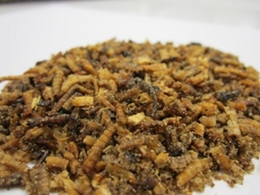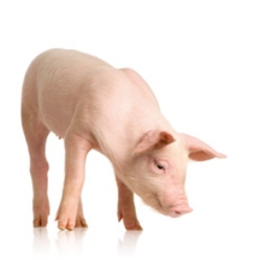Insect protein processing technologies and animal feeding trials
Insects - and more particularly insect proteins - are natural daily feed constituents for thousands of animal species ranging from wild fish to monogastric livestock across the world. However, their obvious potential for incorporation into feeds for the rapidly growing animal feed sector has yet to be realised, despite some promising research that has been conducted.
In this context, the objectives of this workpackage are two-fold:
In first instance, methods for the extraction and refinement of protein will be developed using insects produced from both state-of-the-art as from optimal rearing systems. In general, processing can represent a major economic limitation to the production of low cost commodities, such like feeds and foods. Thus, it is important to define the necessary pre-rupture, extraction/conversion and purification steps needed to retrieve the desired protein fractions from insects. Method development will occur in the laboratory and promising methods will subsequently be scaled up (till pilot scale) to provide sufficient material for validating feeding trials and to provide data to enable a sustainability evaluation of the processing technologies.
The second objective of this workpackage is the evaluation of insects and their processed outcomes as a suitable source of protein for animal nutrition. To reflect the value of animal feed in different geographical areas across the globe, fish, poultry, and pig feeding trials will be conducted in Europe (Belgium and UK) whereas, fish and chicken feeding trials will be conducted by ICPC partners in China, Mali and Ghana. In most cases both crude and refined preparations will be used in feeding trials to enable an evaluation of the benefits of protein refining to be carried out. Data will be collated and used as a basis for comprehensive life cycle analysis to be carried out.




